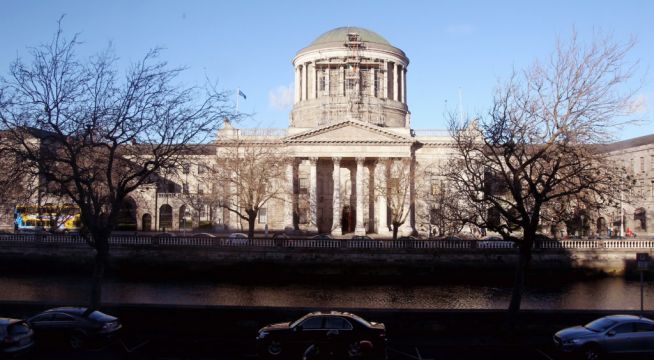An appeal by a former hotelier jailed for five years for raping a 17-year-old employee after a staff party has been sent back to the Court of Appeal (CoA) by the Supreme Court.
Brian Shaughnessy (54), formerly of Ballywinna, Craughwell, Co Galway, was convicted of raping the young female part-time employee in the early hours of July 26th, 2010, in the presidential suite of the Loughrea Hotel and Spa, which he owned at the time.
He had denied the charge but was convicted by a jury in March 2013. He was jailed for six years with one year suspended.
He lodged an appeal which was rejected by the CoA and he then brought a further appeal to the Supreme Court which, on Tuesday, said the matter should be returned to the CoA to consider issues including credibility of the accused and possibly the failure of the competence of his legal representation at his trial.
Competence of defence
In his appeal, he claimed the incompetence of his defence at trial led to his being convicted when otherwise he would not have been.
Specifically, he asserted that timings, highlighting a possibly missing hour or so, which might have cast doubt on the young woman’s account of sexual violence, were inadequately put to her during cross-examination.
He claimed they were mentioned only as an afterthought in a defence speech to the jury, and generally glossed over. He had changed his lawyers after he was convicted.
In April 2020, the CoA upheld the conviction, ruling that claims of incompetent representation were to be analysed as if the application about representation was one to admit newly discovered evidence after a trial.
Lawyers denied claim
The accused’s former lawyers strongly denied his claims of incompetence. His former lawyers were allowed to address the court, along with other lawyers involved though there was no cross-examination permitted of those witnesses as to these contrary assertions, Mr Justice Peter Charleton, on behalf of a five-judge Supreme Court, said.
He said the young woman was uncertain as to times and would not be held to 30 minutes spent in the presidential suite, but the attack was not long and the time spent in there was not claimed to be extensive.
The accused did not give evidence, but in his answers to the gardaí he indicated perhaps 45 minutes as to timing. He had also claimed she was relaxed, which she did not accept, but accepted she had sent texts while in the room.
The judge said Shaughnessy asked for the card key for the room from a member of staff in the bar and at some stage he and the girl went to the suite with a bottle of wine and two glasses.
"When that happened, how soon or not so soon after the key was prepared, no one explored," he said.
Timing of the key
Nonetheless, the timing of the key was emphasised as if significant to the jury by Shaughnessy’s counsel and was not specifically discounted by the trial judge save to point out the actual evidence, he said.
This emphasis on timings was not evident in the cross-examination, on behalf of the accused, of the young woman, he said. Nor did the timing, or any, possibly missing time, emerge in any questions put on behalf of the accused to any other witness.
The cross-examination of the complainant had "every appearance of merely testing credibility in relation to peripheral matters" even though the essence of the accused's account was put to her.
Peripheral matters
Those peripheral matters touched on failing to complain to her mother and why she did not go to the gardaí when she told her friend the day after the attack.
They also referred to what role the Rape Crisis Centre might have had in somehow preparing her for her court appearance.
Mr Justice Charleton said as this case was set out, it was "manifestly not possible” to decide whether or not defence counsel was actually incompetent without hearing more evidence about the instructions actually given or what the accused’s version of events entailed.
'Genuine contest'
This was a "genuine contest" which required that an appellate court should hear oral evidence focused on this point.
The matter should therefore be returned to the CoA to deal with the issue on the credibility of any evidence of the accused and the resolution of any factual matter in reply on oral evidence by both sides.
It must be dealt with on the basis of the test set out by the Supreme Court.
Depending on the resolution of that factual contest, it may be necessary for the CoA to consider if there was such a failure of competence in representation as to deny the accused a trial in due course of law, the judge said.







